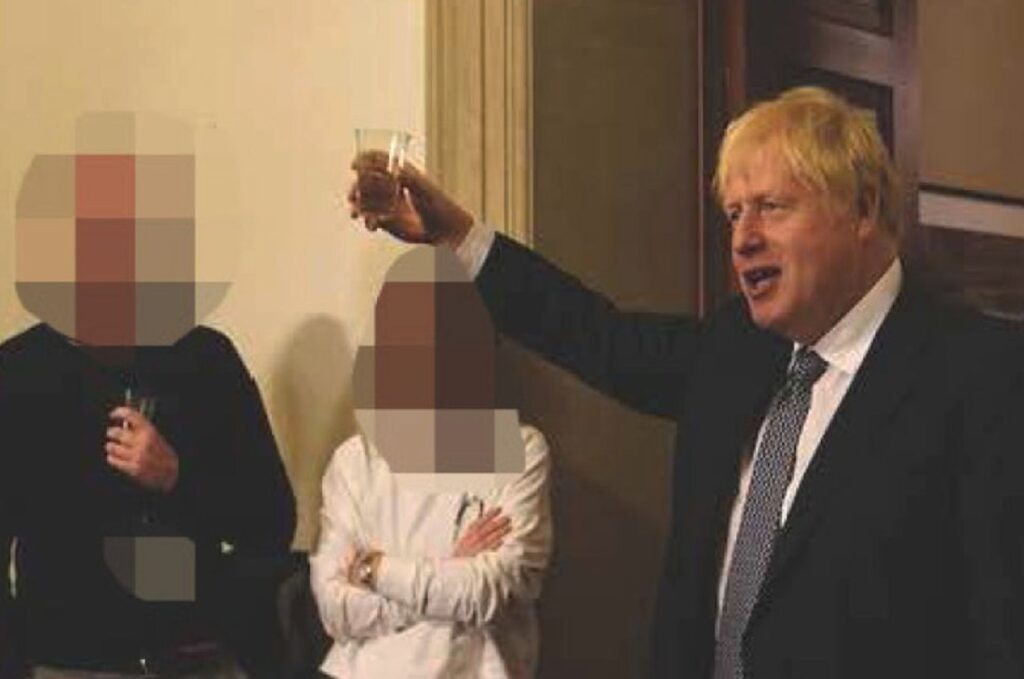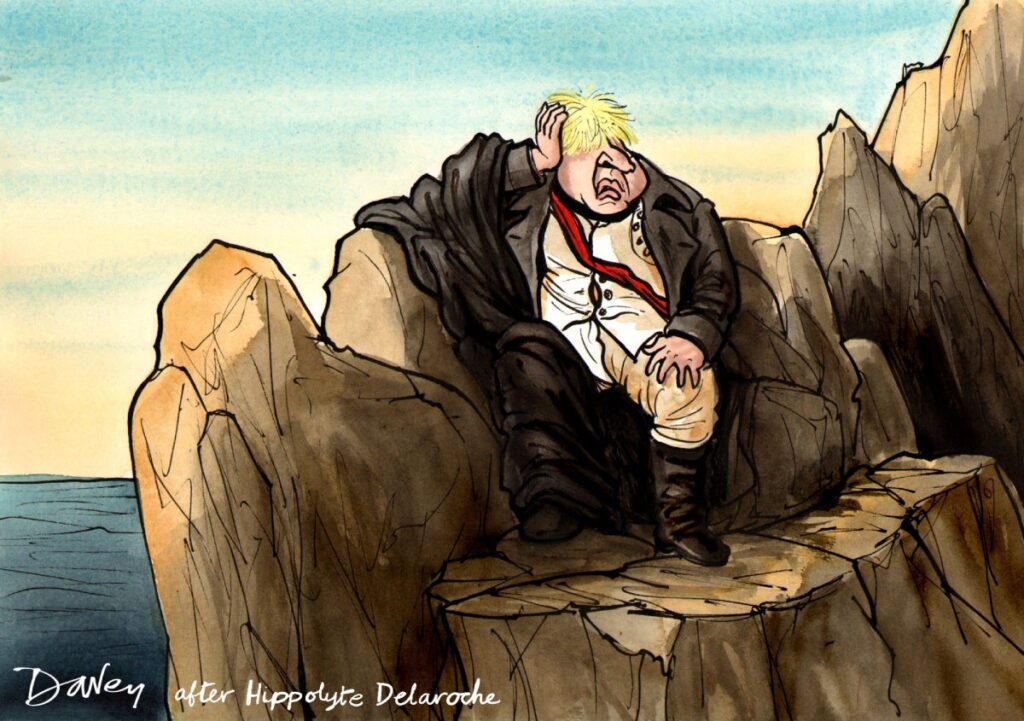On 23 February, former UK prime minister Boris Johnson was questioned for more than three hours by a parliamentary committee comprising nine Members of Parliament (MPs) representing all political parties, including Johnson’s Conservative party. The committee is investigating if Johnson lied, or ‘misled’, parliament about gatherings in Downing Street, which took place when the UK was in lockdown due to the Coronavirus pandemic. The committee could decide Johnson’s political future.
In early 2022, when press stories emerged about ‘parties’at the prime minister’s residence and office in Downing Street, Johnson told parliament that the gatherings were ‘work events’ and insisted that coronavirus guidance on social distancing had been followed. Investigations during 2022, including by London’s Metropolitan police, revealed that at least 15 gatherings had taken place in Downing Street. Some 83 people were fined by police for breaking lockdown rules – including Johnson and current prime minister Rishi Sunak, who was then finance minister. Following these disclosures, people no longer believed Johnson that the Coronavirus rules were always followed and this lack of trust contributed to his forced resignation as prime minister on 7 July 2022.
The ‘gatherings’ or ‘parties’ are not the committee’s concern. Its focus is on whether Johnson lied to parliament about them. Even in this age, lying or ‘misleading’ parliament is a serious offence. MP’s can be temporarily expelled from parliament even if they accuse other MPs of lying. This happened to Ian Blackford when he accused Johnson of misleading parliament over Downing Street ‘parties’.

Deliberate or reckless
It has been established that Johnson misled parliament. If an MP misleads parliament ‘inadvertently’ because of a genuine mistake, is not an offence if the record is corrected. The committee is investigating if Johnson ‘deliberately’ misled parliament– that, when he made his statement, he knew he was lying – or if he misled parliament ‘recklessly’, namely that he should have known that what he was saying was untrue.
In front of the committee, Johnson was belligerent. He denied that he had misled parliament deliberately or recklessly.He said that, at the time, he had believed the gatherings to be work events at which social distancing guidelines were followed and that no one had told him that the rules were being broken. Johnson also said that he had corrected the record after the investigations into the gatherings had reported.
Under the committee’s questions, Johnson’s defence and composure unravelled. Confronted with photographs of him at gatherings in Downing Street where people were drinking and not socially distanced, Johnson claimed that these were work events thanking staff who were leaving. He said that they were necessary to maintain morale. He added that the Covid guidelines said that social distancing should be maintained ‘where possible’ and, sometimes, in Downing Street, an old house and a crowded workspace, it was not possible. The committee pointed out that no other workplace was allowed to arrange such gatherings. Further, if, when announcing the Covid rules to the country, someone had asked Johnson if farewell gatherings were essential work events, he would probably have said no.
The committee also unpicked Johnson’s defence that no one told him he was doing anything wrong. First, the committee argued that the Covid guidelines were Johnson’s own rules, and his own eyes should have told him that they were not being followed. Second, that Johnson only sought advice on whether the rules were being followed from his political advisers. He did not ask senior civil servants, as he should have in such circumstances, nor did he seek legal advice.
As the meeting progressed, Johnson became increasingly angry and agitated. He dismissed the committee’s criticism as ‘complete nonsense,’ and that it was ‘utterly insane’ that he would deliberately mislead parliament. Johnson displayed the sort of entitled arrogance that has led him to waste his 2019 election victory. A win that could have made him prime minister for 10 years. His charismatic confidence dissolved into empty bluster as he tried to defend the indefensible. At the end of the meeting Johnson said that, in his view, the only conclusion the committee could reach was that he was right. He also indicated that he may not accept any other verdict, showing the vanity and lack of self-awareness which, in the end, forced him to resign as prime minister.

Suspended sentence
The committee was unimpressed. It found Johnson’s excuses ‘flimsy’ and will probably conclude that Johnson ‘recklessly’ misled parliament and recommend suspending him for a specific number of days. A suspension from parliament of 10 or more working days could trigger a recall petition, which could lead to Johnson having to face a special election in his constituency to remain in parliament.
The committee is unlikely to force Johnson into a special election, especially as its recommendation must be approved by a vote of MPs in parliament. The Conservative party does not want Johnson to face a special election, not least because he would probably lose.
Whatever the committee recommends, Johnson’s already badly damaged reputation will suffer further. His dreams of becoming prime minister again are in shreds. For many that is only fair. At a time when people could not say goodbye to loved ones who died during the Coronavirus epidemic, Johnson ignored his own social distancing rules and then tried to cover it up. British people will accept that life is unfair, what they will not accept are rules unfairly applying to some, but not others.


